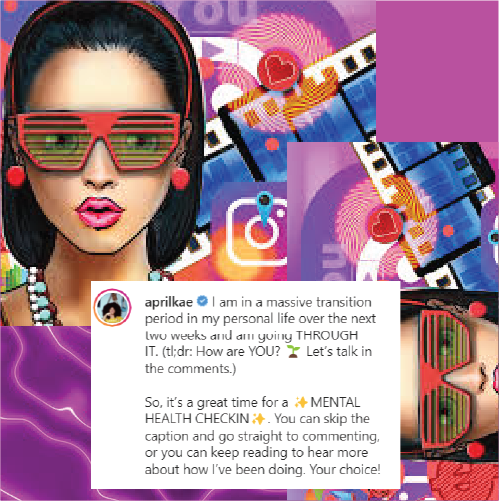What is the goal behind your pursuit of accountability? Sitting down with relationship coach Morgan, we explore how we can better approach building and sustaining connections while feeling grounded in our own role.
Interview by IMANIGOLD Communications Director Jalena Shand and edited by IMANIGOLD Managing Editor Samiah Fulcher

Throughout your work, you observe how relationships form, adapt, and grow. What types of parallels do you see between community-based relationship building and interpersonal relationship building?
When I talk to people about the kind of relationships they want, we usually start by talking about politics. How do you engage with your community? What do you feel you owe other people and vice versa? That conversation helps set a baseline. Exploring the answers to those questions provides insight into how you relate interpersonally. It’s like a microcosm of how you might be on the community level.
It’s interesting that you mentioned ‘what do you owe.’ A lot of times, there is a gray area of how much you’re supposed to give in a relationship. What advice would you have for someone who is struggling to navigate this?
Immediately it brings the term ‘people-pleasing’ to my mind. And with this term I usually inquire, who is actually pleased? Because if you overcommit to something and can’t deliver, then that doesn’t please anyone. Or, if you are compromising your own needs and the person isn’t asking you to do that, well who’s happy here? This pattern can come from several different reasons and reactions; Often people who exhibit this behavior were raised in a space where they always had to comply. So having empathy for yourself or the person exhibiting these behaviors is important.
Mainly, I think being really realistic about what could be sustainable is important when we’re committing to something. If we remove the emotional aspect and look at it as if we’re having another job, how many hours a week could you give to that ‘job?’ What are they ‘paying’ you and what are you willing to do for that ‘pay?’
I love the point you brought up about being realistic with what’s sustainable. Holding ourselves accountable is hard and now, with social media, it’s easiest to cancel someone as a repercussion. What are your thoughts on how we can better approach accountability?
Accountability is something that I think we’re still working on finding the best solution. It still feels a bit clunky and can create harm in the ways we pursue it. Obviously there’s an exception if someone is a potential harm to the community, broadcast that shit. But, I think if it’s possible, it’s important to do peer to peer offline accountability or a sidebar DM saying, “Hey, I wanted to talk to you about this.”
So, I think starting with that is ideal. I see public shaming as a last resort, if none of those other avenues have been effective. And being mindful of what the goal is with this pursuit of accountability is crucial. Is it to get revenge? Is it to humiliate the person or is it to actually get them to change their behavior? Is it to actually get justice in a tangible form? Maybe it’s a mix of those two. But checking-in with our motivations in our pursuit for accountability can be really helpful in pointing to how we pursue it.
Self check-ins are crucial and it brings me to my last question. Often online, we see performative behavior in activism and relationships, and it can feel overwhelming to hold yourself to these standards. What advice would you give to our readers who feel like they’re falling short within their relationships?
I think we’re gradually moving away from an interest in things that don’t feel genuine. On social media, it’s less rewarded to be perfect, which is heartening. I understand the desire to compare yourself, but the only person you can compare yourself to is you from yesterday. You’re the only one who has your background, struggles, accomplishments, and needs. So, to compare yourself to another person is futile.
But in terms of feeling like you’re falling short of your duties or being a “good” partner or activist, go to the people who have the least amount of power and say, “What do you think?” We don’t have to figure out the solutions alone in our heads. Maybe it’s time to reevaluate and ask yourself, “Is this a sustainable goal? Is this something that is reasonable to expect of our relationship or of our team?” And to go to people who have achieved those things and ask them how they did it and what work went into that. Talk to people who’ve walked the walk before you, that can really help streamline things. You don’t have to reinvent the wheel every time.
“We don’t have to figure out the solutions alone in our heads.” I love that. It’s so important to drive home that point, and I think that’s a beautiful note to end on.

